University of Wurzburg
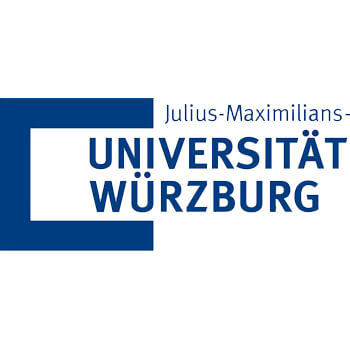
Founded: 1402
Address: Sanderring 2 - Bavaria, Germany
Phone: +49931 310
Address: Sanderring 2 - Bavaria, Germany
Phone: +49931 310
Here you find out University of Wurzburg complete information about fees, location, degree University of Wurzburg offers, number, website, and much more. University of Wurzburg is a leading university in Bavaria - Germany.
You can also find out jobs at University of Wurzburg for students, teachers, and professors. We also update the database for an internship at University of Wurzburg for students.
Julius-Maximilians-Universität believes that we must work together across the entire university to develop our workforce. This is why we have joined forces with inhouse experts that help us provide development and training opportunities tailored to the needs and aspirations of both our academic and our support staff.
The Academic Staff Development team develops initiatives for academic s...taff at all career levels and coordinates the initiatives developed by its partners.
The Support Staff Development team coordinates the professional development opportunities for JMU’s support staff and provides information and advice for all staff members interested in offering or participating in staff development initiatives.
The history of Julius-Maximilians-Universität (JMU) Würzburg reaches back as far as 1402. At that time, it was the sixth institution of higher education to be founded in the German-speaking regions of Europe, after the universities in Prague, Vienna, Heidelberg, Cologne, and Erfurt.
Many eminent scholars and scientists, 14 Nobel Laureates among them, have conducted research and taught in Würzburg. Notable scientists include Wilhelm Conrad Röntgen, who discovered X-rays in Würzburg in 1895, and Klaus von Klitzing, who discovered the Quantum-Hall Effect. Today, Würzburg’s university comprises ten faculties with approximately 425 professors and 29,000 students.
In addition to the four classic subjects – medicine, theology, philosophy, and law – the university also offers many new degree programs. The most recent additions include Nanostructure Technology, Functional Materials, Games Engineering, Modern China, Digital Humanities, Media Communications, Human Factors in Computing Systems, and Museology, just to name a few.
As the number of degree programs offered has grown, so too has the university. To accommodate the growth of the student population, the Hubland Campus was built on a hill at the eastern edge of the city. Newly-designed degree programs and a steady influx of students continue to drive the institution’s growth. In 2011, the university expanded to include the newly established Campus Nord, a 39-hectare area in the immediate vicinity of Hubland Campus.
JMU is one of the leading institutions of higher education in Germany, according to the rankings of domestic and international research organizations and international expert committees. On an international level, the University of Würzburg ranks in the top bracket of academic institutions in many scientific disciplines including biology, medicine, physics, and psychology.
In the 1990s, the university began founding cross-faculty research centers, which opened up new research areas and possibilities for innovative degree programs. These interdisciplinary centers, such as the Research Center for Infectious Diseases, have become an internationally prominent trademark of the University of Würzburg.
The creation of research centers has pushed the university into the top tier of German academic institutions and has had numerous positive effects. For example, it has rapidly boosted the amount of public funding, private donations, and research funds from industrial companies. The number of academically prestigious publications has also grown significantly since the mid-1990s, even though the number of positions for professors and assistants at the university remained almost constant during that period.
The University of Würzburg’s numerous Collaborative Research Centers, Research Training Groups, and Research Units, funded by the German Research Foundation (DFG) have greatly contributed to the university’s high standing in the scientific community. In 2002, the University of Würzburg launched one of three DFG-funded Centers of Excellence across Germany – the Rudolf Virchow Center/DFG Research Center for Experimental Biomedicine. The research teams investigate key proteins, which are especially important for sustained health and in understanding the origin of diseases.
The University of Würzburg is strongly committed to the advancement of junior academics. In 2004, the university established its Graduate Schools to provide doctoral candidates with the appropriate resources and facilities to continue and enhance their education.
Julius-Maximilians-Universität Würzburg (JMU) is an internationally acclaimed university offering a wide range of subjects. Our university has strong roots in Würzburg and the region of Main Franconia, and our research and teaching activities have led to achievements of global significance.
We are committed to continuing excellence in research and teaching across all branches of science. Established for the first time in 1402, the University of Würzburg now offers more than 100 subjects in the humanities, social and natural sciences, life sciences, medicine and selected areas of engineering. We prepare our students for careers in a wide range of fields and we aim to closely coordinate our teaching with our current research activities. Our students work with renowned scientists from all over the world and, with the completion of their Bachelor’s, Master’s or doctoral degrees, make their own contributions to science.
The university is committed to strengthening interdisciplinary cooperation and investigating emerging disciplines at the interface between different branches of science. Working towards sustainable development across all subjects, JMU has initiated ongoing quality improvement processes. JMU’s main objective is to gain insights into all scientific disciplines and to share these insights with students, research professionals, and the general public.
In addition to delivering research and teaching of international standing, we must never forget our ethics and responsibility towards society. Our motto – ‘Veritati’, meaning devoted to the truth – also reflects this attitude. We fulfil our social responsibility by advocating the basic rights of democracy, supporting humanitarian activities, and promoting the sustainable use of resources.
Our initiatives in the area of academic staff development are aimed at helping researchers to develop generic skills. We are committed to helping researchers at all career stages advance their own careers and, in their capacity as mentors and supervisors, develop the careers of the next generation of researchers, promoting equal opportunity and the selection of the most talented individuals.
You can also find out jobs at University of Wurzburg for students, teachers, and professors. We also update the database for an internship at University of Wurzburg for students.
Julius-Maximilians-Universität believes that we must work together across the entire university to develop our workforce. This is why we have joined forces with inhouse experts that help us provide development and training opportunities tailored to the needs and aspirations of both our academic and our support staff.
The Academic Staff Development team develops initiatives for academic s...taff at all career levels and coordinates the initiatives developed by its partners.
The Support Staff Development team coordinates the professional development opportunities for JMU’s support staff and provides information and advice for all staff members interested in offering or participating in staff development initiatives.
The history of Julius-Maximilians-Universität (JMU) Würzburg reaches back as far as 1402. At that time, it was the sixth institution of higher education to be founded in the German-speaking regions of Europe, after the universities in Prague, Vienna, Heidelberg, Cologne, and Erfurt.
Many eminent scholars and scientists, 14 Nobel Laureates among them, have conducted research and taught in Würzburg. Notable scientists include Wilhelm Conrad Röntgen, who discovered X-rays in Würzburg in 1895, and Klaus von Klitzing, who discovered the Quantum-Hall Effect. Today, Würzburg’s university comprises ten faculties with approximately 425 professors and 29,000 students.
In addition to the four classic subjects – medicine, theology, philosophy, and law – the university also offers many new degree programs. The most recent additions include Nanostructure Technology, Functional Materials, Games Engineering, Modern China, Digital Humanities, Media Communications, Human Factors in Computing Systems, and Museology, just to name a few.
As the number of degree programs offered has grown, so too has the university. To accommodate the growth of the student population, the Hubland Campus was built on a hill at the eastern edge of the city. Newly-designed degree programs and a steady influx of students continue to drive the institution’s growth. In 2011, the university expanded to include the newly established Campus Nord, a 39-hectare area in the immediate vicinity of Hubland Campus.
JMU is one of the leading institutions of higher education in Germany, according to the rankings of domestic and international research organizations and international expert committees. On an international level, the University of Würzburg ranks in the top bracket of academic institutions in many scientific disciplines including biology, medicine, physics, and psychology.
In the 1990s, the university began founding cross-faculty research centers, which opened up new research areas and possibilities for innovative degree programs. These interdisciplinary centers, such as the Research Center for Infectious Diseases, have become an internationally prominent trademark of the University of Würzburg.
The creation of research centers has pushed the university into the top tier of German academic institutions and has had numerous positive effects. For example, it has rapidly boosted the amount of public funding, private donations, and research funds from industrial companies. The number of academically prestigious publications has also grown significantly since the mid-1990s, even though the number of positions for professors and assistants at the university remained almost constant during that period.
The University of Würzburg’s numerous Collaborative Research Centers, Research Training Groups, and Research Units, funded by the German Research Foundation (DFG) have greatly contributed to the university’s high standing in the scientific community. In 2002, the University of Würzburg launched one of three DFG-funded Centers of Excellence across Germany – the Rudolf Virchow Center/DFG Research Center for Experimental Biomedicine. The research teams investigate key proteins, which are especially important for sustained health and in understanding the origin of diseases.
The University of Würzburg is strongly committed to the advancement of junior academics. In 2004, the university established its Graduate Schools to provide doctoral candidates with the appropriate resources and facilities to continue and enhance their education.
Julius-Maximilians-Universität Würzburg (JMU) is an internationally acclaimed university offering a wide range of subjects. Our university has strong roots in Würzburg and the region of Main Franconia, and our research and teaching activities have led to achievements of global significance.
We are committed to continuing excellence in research and teaching across all branches of science. Established for the first time in 1402, the University of Würzburg now offers more than 100 subjects in the humanities, social and natural sciences, life sciences, medicine and selected areas of engineering. We prepare our students for careers in a wide range of fields and we aim to closely coordinate our teaching with our current research activities. Our students work with renowned scientists from all over the world and, with the completion of their Bachelor’s, Master’s or doctoral degrees, make their own contributions to science.
The university is committed to strengthening interdisciplinary cooperation and investigating emerging disciplines at the interface between different branches of science. Working towards sustainable development across all subjects, JMU has initiated ongoing quality improvement processes. JMU’s main objective is to gain insights into all scientific disciplines and to share these insights with students, research professionals, and the general public.
In addition to delivering research and teaching of international standing, we must never forget our ethics and responsibility towards society. Our motto – ‘Veritati’, meaning devoted to the truth – also reflects this attitude. We fulfil our social responsibility by advocating the basic rights of democracy, supporting humanitarian activities, and promoting the sustainable use of resources.
Our initiatives in the area of academic staff development are aimed at helping researchers to develop generic skills. We are committed to helping researchers at all career stages advance their own careers and, in their capacity as mentors and supervisors, develop the careers of the next generation of researchers, promoting equal opportunity and the selection of the most talented individuals.
Read More
Details:
LeaderShip: President: Prof. Dr. Alfred Forchel
Fees:
Time:
Phone Number: +49931 310
City: Bavaria
Fees:
Time:
Phone Number: +49931 310
City: Bavaria
Timing:
Country: Germany
Staff: 4268
Website: http://www.uni-wuerzburg.de
Country: Germany
Staff: 4268
Website: http://www.uni-wuerzburg.de
Subjects:
Jobs in University of Wurzburg
Currently, there is no job opening in University of Wurzburg as per our database.

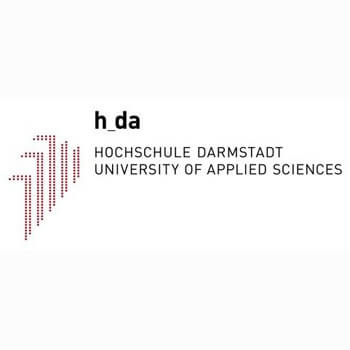
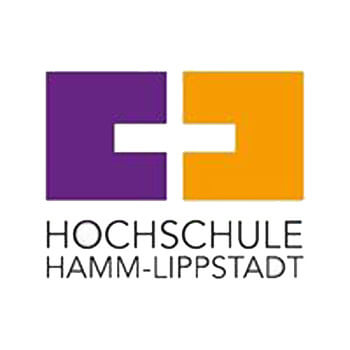
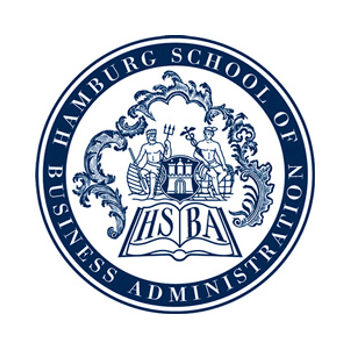


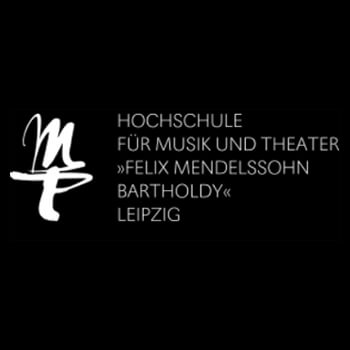

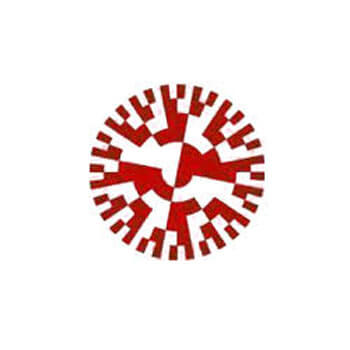










Leave a Reply